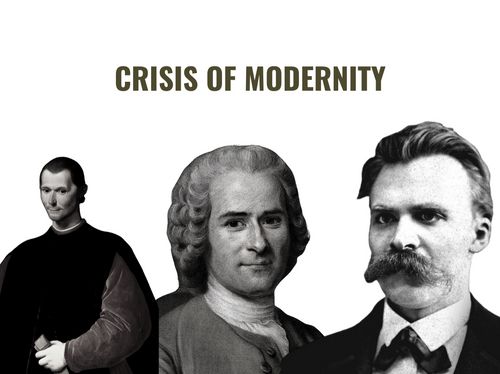The Three Waves Of Modernity by Leo Strauss
Oct 26, 2021 · 2 mins read
0
Share
In his essay The Three Waves of Modernity, Leo Strauss gives a sweeping account of the political history of the West. He uses ideas from Plato, Machiavelli, Nietzsche and others to tell the story of modernity 👇
Save
Share
Plato and Aristotle believed the ideal state can only come about through chance. For the best regime, one needs the "the unlikely coming together of philosophy and political power." Machiavelli broke away from this belief and presented an alternative.
Save
Share
The first wave of modernity. Machiavelli's alternative: chance can be mastered. To reach the ideal regime, one doesn't need morals or "divine grace" - one just needs "institutions with teeth." With Machiavelli, "the political problem becomes a technical problem."
Save
Share
A new understanding of nature. For Plato, natural law was the law that objectively suited the realization of virtue and was the same everywhere. For Machiavelli, this created an unbridgeable gulf between the ought and the is. He aimed to lower the ought to make it more reachable.
Save
Share
Rousseau kickstarts the second wave of modernity. For Machiavelli, natural law was too high a bar; for Rousseau, man in the state of nature offers no guidance as he's neither social nor rational. If not from nature, where should man look for guidance? Towards the "general will."
Save
Share
Strauss explains Rousseau's reasoning: "Why is the general will necessarily good? The answer is: it is good because it is rational, and it is rational because it is general." Kant managed to make this circular logic a little more linear👇
Save
Share
Kant's tested an idea's validity by asking if it would work as a universally applicable law. This test by universal application can help shine a light on the difference between right and wrong in an age when natural law has lost the ability to motivate and guide.
Save
Share
The third wave of modernity. Nietzsche asks: can the general will really give good answers if the typical person in the general population looks like the "last man"? The last man chases after not great visions, but comfort. Ideals don't move him; survival without exertion does.
Save
Share
Nietzsche's solution. Plato puts his faith in the coming together of philosophy and power, Machiavelli leans on strong institutions, and Rousseau expects answers from the general will. Nietzsche, on the other hand, thinks progress will come from the "Over-man."
Save
Share
The "Over-man" looks to neither nature nor the general will, but creatively births his own values and goals. For Strauss, the political "crisis of modernity" is the battle between these three waves. The shadow of the "premodern thought" of Plato, too, hangs over the battle-field.
Save
Share
0
